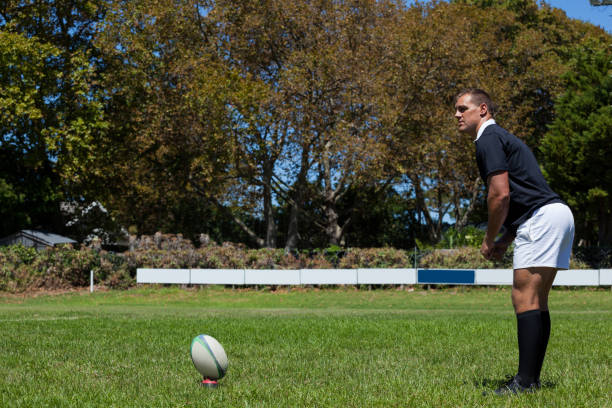Chasing the Oval Ball: A Comprehensive Guide to Rugby Scholarships in South Africa
For aspiring young South African rugby players, a scholarship can be the golden ticket to elevate their game, access world-class training facilities, and potentially launch a professional career. This guide delves into the world of rugby scholarships in South Africa, equipping you with the knowledge and strategies to turn your on-field talent into academic and sporting success.
Understanding the Landscape of Rugby Scholarships
Rugby scholarships in South Africa exist at various levels, catering to players of different age groups and skill levels. Here’s a breakdown of some common options:
High School Rugby Scholarships:
- Offered by prestigious private schools in South Africa with renowned rugby programs.
- Provide financial assistance towards tuition, boarding fees, and potentially additional expenses.
- Often highly competitive, requiring exceptional playing ability and strong academic performance.
University Rugby Scholarships:
- Offered by universities with established rugby teams competing in national leagues or tournaments.
- Vary in value, covering a portion or entirety of tuition fees, accommodation, and living expenses.
- Selection is based on a combination of athletic prowess, academic record, and potential for future development.
Provincial Rugby Union Scholarships:
- Awarded by South African provincial rugby unions to identify and nurture future Springbok stars.
- Offer comprehensive support packages encompassing training, coaching, education, and living expenses.
- Extremely competitive, requiring exceptional talent and dedication to the sport.
Private and Corporate Scholarships:
- Offered by foundations, corporations, or individuals with a passion for rugby development.
- Eligibility criteria can vary but might prioritize specific geographic areas, financial need, or playing positions.
- Research opportunities provided by organizations like the Sharks Foundation or SAB Sports Scholarship.
Unveiling Eligibility Criteria – What Makes You a Strong Candidate?
Meeting the eligibility criteria is crucial to secure a rugby scholarship. Here are key factors that scholarship committees consider:
-
Playing Ability: Demonstrated talent and exceptional skills on the field are paramount. Showcase your abilities through consistent performance at club or school level, participation in provincial or national age-group teams, and impressive game statistics. Compile video footage showcasing your strengths and playing style.
-
Academic Performance: Academic performance is a significant consideration for most scholarships. Maintaining good grades demonstrates discipline, commitment, and the ability to balance academic and athletic demands. Specific GPA requirements might exist depending on the scholarship program.
-
Leadership Potential: Leadership qualities are highly sought-after. Do you captain your team? Do you take initiative on and off the field? Highlight instances where you displayed leadership qualities, motivating teammates or contributing positively to the team environment.
-
Sportsmanship and Character: Demonstrate good sportsmanship, respect for referees and opposing teams, and a commitment to fair play. A positive attitude, dedication to training, and a strong work ethic are valued attributes.
-
Future Potential: Scholarship committees look for players with long-term potential. Highlight your desire to learn, grow as a player, and contribute to your team’s success at the highest level. Your passion for rugby and commitment to ongoing development are crucial factors.
Building a Strong Application – Showcasing Your Talent and Potential
A well-crafted application can significantly increase your chances of securing a scholarship. Here’s how to create a compelling package:
-
Comprehensive CV (Curriculum Vitae): Your rugby CV should include playing experience, past teams, achievements (tournaments, awards), playing positions, and any relevant coaching or training experiences.
-
Academic Transcripts: Provide official transcripts demonstrating your academic performance and commitment to education.
-
Match Footage: Compile a high-quality video showcasing your skills, game highlights, and playing style. Ensure the footage is well-edited and focuses on your strengths.
-
Recommendation Letters: Seek strong recommendation letters from coaches, teachers, or mentors who can vouch for your talent, work ethic, and academic ability.
-
Personal Statement: Craft a compelling personal statement outlining your rugby goals, academic aspirations, reasons for seeking a scholarship, and how the specific program aligns with your ambitions. Showcase your passion for rugby, your dedication to learning, and your long-term vision.
Beyond the Application – Strategies for Success
Start Early and Plan Strategically:
- Begin planning early in your high school career.
- Focus on consistently improving your skills through dedicated training and participation in high-level competitions.
- Research scholarship opportunities well in advance of application deadlines. Identify scholarships that align with your playing style, academic goals, and long-term aspirations.
Maximize Your Exposure – Get Noticed by Scouts and Coaches:
- Perform consistently well at every game, showcasing your talent and potential.
- Participate in provincial or national age-group teams to gain exposure to a wider audience.
- Attend rugby camps and tournaments that attract scouts and coaches from universities and provincial unions.
- Create a highlight reel showcasing your best performances from various games and practice sessions. Utilize online platforms or share your highlight reel directly with coaches or scholarship committees.
Develop Strong Relationships with Coaches and Mentors:
- Build positive relationships with your coaches, mentors, and teachers.Seek guidance on improving your skills and athletic performance.
- Request letters of recommendation from coaches who can speak to your talent, work ethic, and potential for success.
Maintain Top Physical Conditioning:
- Rugby is a physically demanding sport. Implement a rigorous training program that focuses on strength, speed, agility, and endurance.
- Develop a healthy diet and prioritize adequate sleep to ensure peak physical conditioning throughout your application process and beyond.
Showcase Your Academic Ability:
- Don’t neglect your academics – good grades are essential for most scholarships.
- Utilize academic support resources offered by your school if needed.
- Highlight any academic achievements or awards in your application materials.
Prepare for Scholarship Interviews:
- Research the scholarship program and university beforehand.
- Anticipate potential interview questions and prepare clear, concise answers that showcase your passion for rugby, academic goals, and future aspirations.
- Dress professionally and demonstrate confidence and enthusiasm during the interview.
Additional Considerations:
-
Financial Aid and Budgeting:
- Explore additional financial aid options like student loans or bursaries alongside scholarships.
- Research living expenses associated with attending university or residing at a boarding school.
- Develop a budget to manage your finances effectively if you are awarded a scholarship that doesn’t cover all your expenses.
-
Mental Toughness and Resilience:
- The journey to securing a scholarship and pursuing a rugby career can be demanding.
- Develop mental toughness, resilience, and the ability to cope with setbacks.
- Maintain a positive attitude, learn from your mistakes, and focus on continuous improvement.






